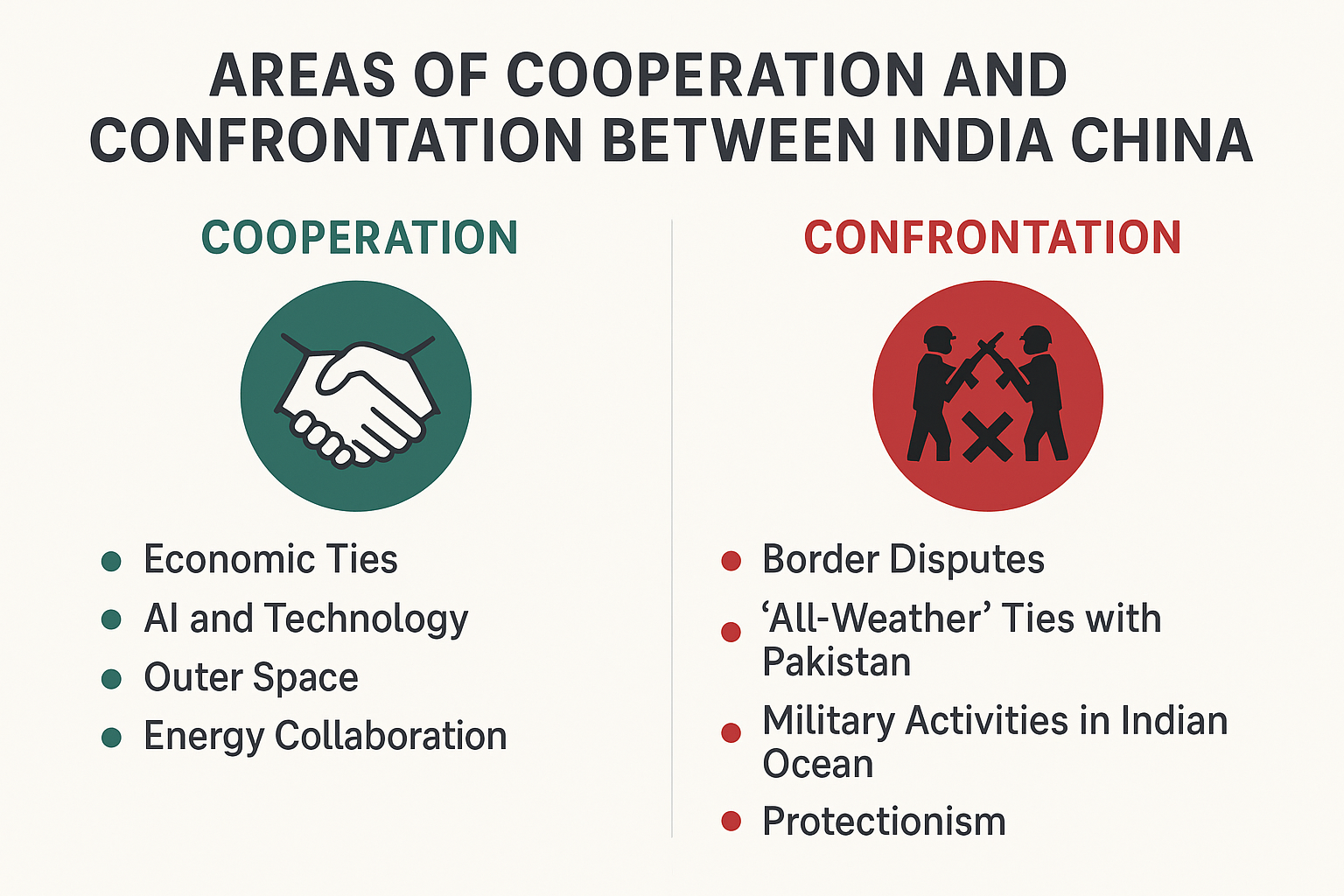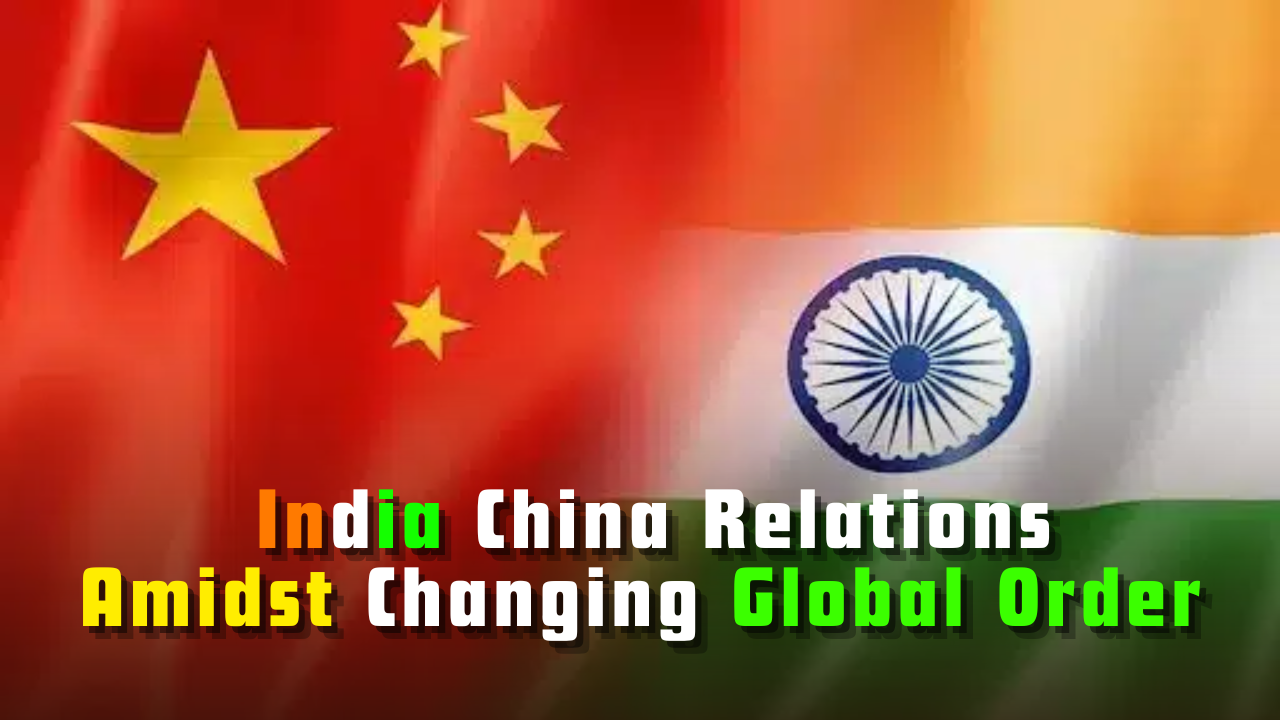Font size:
Print
India China Relations Amidst Changing Global Order
India China Relations : China is growing more confident and combative towards Washington, driven by a belief in America’s decline and its own inevitable rise. There is a need for India to avoid “third-country considerations” in bilateral engagement.

Why should India and China work together amidst the current disturbance in the global order?
- Geopolitical Flux: The world is increasingly polarised into two camps led by the US and China. Beijing perceives the current moment as an opportunity for India and China to work together and reduce rivalry.
- Shared Developmental Goals: Both nations are major economies in Asia, facing similar challenges of growth, technology adoption, and sustainable development.
- Opportunities from US–China Competition: Trump’s tariff wars and transactional diplomacy are seen in Beijing as a space where China can secure its interests, potentially aligning with India in multilateral forums.
- Global South Advocacy: India and China both seek greater representation for developing countries in global governance, a cause strengthened by cooperation.
What are the areas of cooperation between India and China?
- Artificial Intelligence (AI): China has launched the Global AI Governance Initiative (2023) and is setting up the World Artificial Intelligence Cooperation Organisation in Shanghai; a “twin-engine” partnership with India could be mutually beneficial.
- Outer Space Collaboration: Joint research and technology sharing in space exploration and satellite systems.
- Multilateral Platforms: Strengthening coordination through the Shanghai Cooperation Organisation (SCO) and BRICS.
- Infrastructure Development: China’s prior experience in Indian ports, telecom, rare earths, aluminium refinement, and EPC (engineering, procurement, and construction) projects.
- Energy Cooperation: Joint projects in energy, including in third countries.
- Technology Transfer to the Global South: Collaborative initiatives to empower developing nations.
What can be the new areas of cooperation in India China Relations?
- Climate Action & Green Energy: Co-developing renewable energy solutions and electric vehicle infrastructure.
- Health Security: Joint research in pharmaceuticals, vaccines, and public health systems.
- Digital Infrastructure: Building secure and interoperable digital systems for trade, finance, and e-governance in the Global South.
- Blue Economy: Collaboration in sustainable fisheries, maritime connectivity, and oceanographic research in the Indian Ocean.
- Agritech & Food Security: Sharing innovations in irrigation, crop resilience, and sustainable farming.
Why should India ensure its strategic autonomy by balancing between China and the US?
- Avoiding Over-Dependence: Over-reliance on either the US or China could limit India’s ability to independently pursue its interests.
- Boundary Dispute & Strategic Mistrust: While cooperation is possible, unresolved territorial issues and China’s close ties with Pakistan remain strategic challenges.
- Freedom of Action in the Indo-Pacific: Balancing ensures India can safeguard its maritime interests, including monitoring Chinese naval activities in the Indian Ocean.
- Leveraging Multipolarity: Strategic autonomy allows India to extract benefits from both partnerships — technological access from the US and manufacturing/market opportunities from China.
- Preserving National Interest in a Divided World: As great-power rivalry intensifies, India’s non-aligned yet pragmatic stance can maximise diplomatic space.
Subscribe to our Youtube Channel for more Valuable Content – TheStudyias
Download the App to Subscribe to our Courses – Thestudyias
The Source’s Authority and Ownership of the Article is Claimed By THE STUDY IAS BY MANIKANT SINGH




